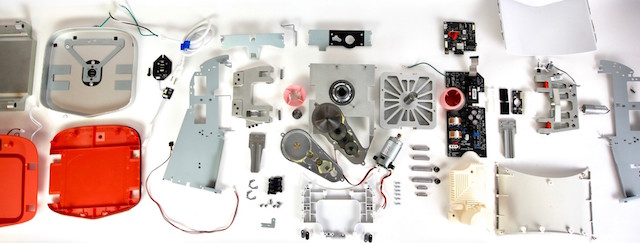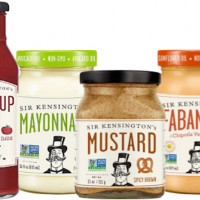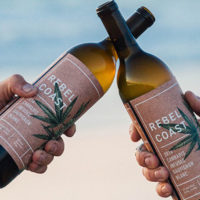
Every week we track the business, tech and investment trends in CPG, retail, restaurants, agriculture, cooking and health, so you don’t have to. In last week’s top news, Ben Epstein, founder and partner of hardware venture fund Bolt, wrote the best analysis of Juicero we’ve read. He literally took apart Juicero’s hardware and broke down where the startup may have misdirected spending and energy. In other CPG news, after discovering that a Dollar Tree shopper registered their darling vegan brand Just as a generic budget brand, Hampton Creek has hired a designer to lead a multiyear redevelopment of the Just label, starting with the packaging. And as the demand for local food continues to increase, supermarkets are struggling to keep up.
Check out our weekly round-up of last week’s top food startup, tech and innovation news below or peruse the full newsletter here.
Our newsletter is the absolute easiest way to stay on top of the emerging sector, so sign up for it today and never miss the latest food tech and innovation news and trends, Already signed up? Share the love with your friends and colleagues!
_______________
1. Here’s Why Juicero’s Press is So Expensive – Ben Einstein
Bolt General Partner Ben Einstein breaks down where Juicero went wrong in building its unnecessarily complex machinery and supply chain. He argues that the company wasted tens of millions of dollars on product development prior to shipping a single unit, a cautionary tale for any hardware startup.
Juicero raised nearly $120M from well-known investors before shipping a single unit. The team spent over two years building an incredibly complex product and the ecosystem to support it.
2. Millennial Food Innovators: Fruiti-Cycle Takes on Post-Harvest Losses
Fruiti-Cycle, an electric motorized tricycle equipped with a refrigerated storage unit, is designed to reduce the significant waste that occurs in post-harvest handling in Uganda
3. Artisanal Branding Grows Up – Co. Design
In order to better attract customers at lower-cost retailers such as Walmart, Hampton Creek has hired a designer to lead a multiyear redevelopment of its Just brand, starting with the packaging.
4. Growing Pains: Why Supermarkets are Struggling to Source Local Products – FoodDIVE
Consumer demand for locally grown food has surged at supermarkets, but small farms require further investment to meet demands of grocers and breaking down distribution systems has proven difficult for supermarkets.
5. The Demand for ‘Local’ Food is Growing — Here’s Why Investors Should Pay Attention – Business Insider
If nutrition labels were designed to visualize ingredient proportions, it would likely be easier to avoid sugary foods. An ad campaign from a German consumer interest group shows how much sugar is used in foods like Nutella.
6. Millennials Drive the Better-For-You Snacking Trend – FoodDive
Studies show that two-thirds of millennials surveyed prefer snacks with fewer ingredients and 79 percent will choose snacks with ingredients they recognize.
7. How Gut Bacteria Tell Their Hosts What to Eat – Scientific American
Neuroscientists have found specific types of gut flora help a host animal detect which nutrients are missing in food and then assess how much of those nutrients the host really need to eat.
8. Forget the Food Delivery Startups — People Love Ordering From Grubhub – Quartz
Two years ago, Grubhub’s stock was in free fall, as investors who feared disruption from the many food-delivery startups fled. Today, Grubuhub’s stock is outperforming expectations and its number of active diners increased 26 percent in the last year.
9. This Startup Has a Natural Solution to the $2.6T Food Waste Problem – Fortune
Apeel Sciences’ edible packaging, which is made from uneaten plant material that can be applied to the outside of produce, can double to quadruple the shelf life of produce.
10. Big Name Food Brands Lose Battle of the Grocery Aisle – The Wall Street Journal
Instead of promoting packaged goods from brands like Kraft Heinz Co. and Kellogg, supermarkets are giving better play to fresh food, prepared hot meals, and items from local upstarts.





